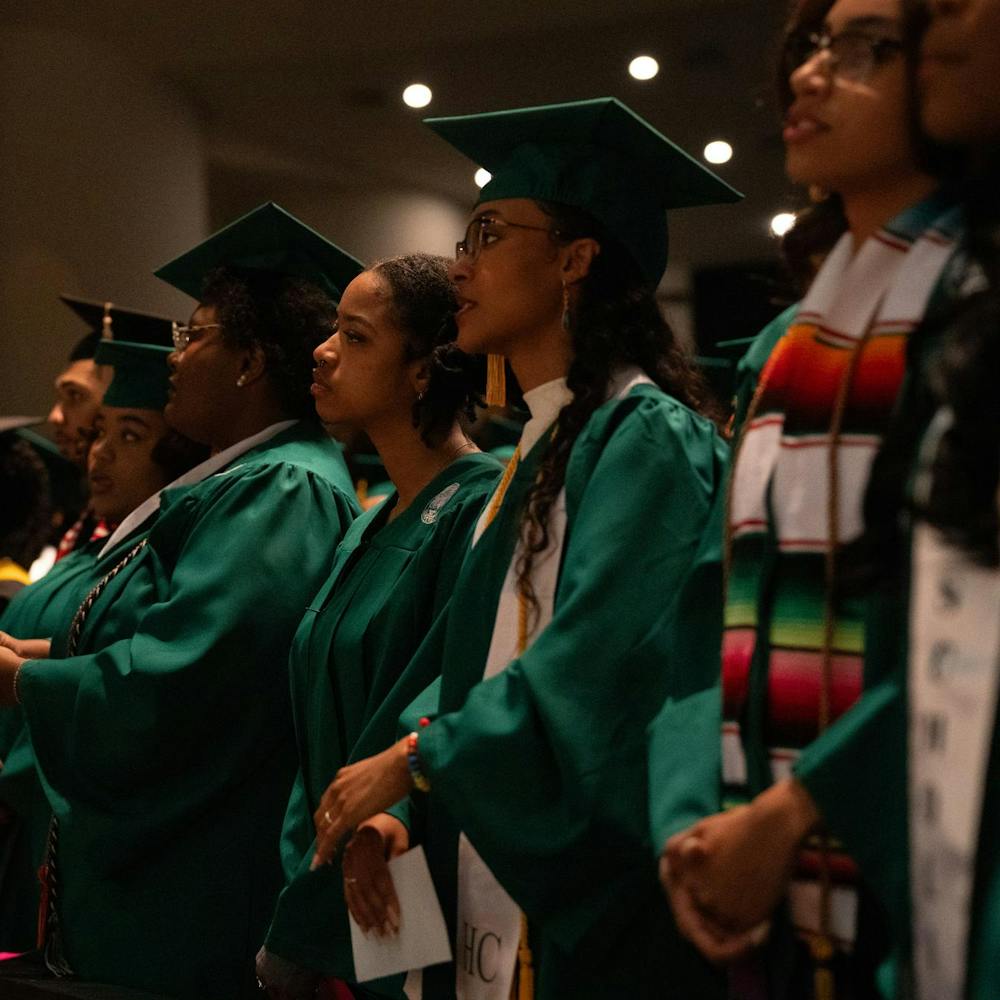President Barack Obama on Wednesday called on a Congress divided to continue investing in education and research despite a budget deficit in the trillions of dollars and soaring national debt.
The president’s remarks during his State of the Union address invoked imagery from decades past when the U.S. and Russia competed to launch a satellite into space. It was not a lesson in history so much as it was a call to action.
“Compete” is the operative word; “education” and “research” are part of the means to do so, Obama said.
“Half a century ago when the Soviets beat us into space with the launch of a satellite called Sputnik, we had no idea how we’d beat them to the moon,” Obama said. “But after investing in better research and education, we didn’t just surpass the Soviets: We unleashed a wave of innovation that created new industries and millions of new jobs.”
Keeping with the message’s theme, Obama stressed the importance of students across the U.S. obtaining one or more degrees to create a competitive job market.
He called on Congress to maintain a permanent federal tuition tax credit worth $10,000 between four years in order to increase the number of college graduates nationwide, calling it “the right thing to do.”
“To compete, higher education must be within reach of every American,” Obama said.
The president’s remarks at face value signal good news for MSU and other colleges and universities. Students rely on federal financial aid, and researchers rely heavily on federal dollars to fund research projects.
But experts agree, Obama’s wishes for education and research, among his other proposals, are driving straight for a red-tinted roadblock.
Leaders in the Republican-dominated U.S. House have vowed to block any further government spending. Its promise signals a battle over key budget and economic issues looms on the horizon.
In a statement issued following Obama’s speech, U.S. Rep. Mike Rogers, R-Brighton, echoed this in part.
“The spending spree in Washington, D.C., is out of control, and the debt and deficit continue to climb to heights never seen before,” Rogers said, but noting he looks forward to working with the president in the coming months.
During his address, Obama seemed to seek further investment in certain areas, and one thing stuck out to many: his proposal to freeze nonsecurity, discretionary spending over a five-year period.
Without divulging specifics, Obama said the plan would help reduce the $1.26 trillion federal budget deficit estimated by the Office of Management and Budget by $400 billion if enacted by Congress.
U.S. Rep. John Dingell, D-Dearborn, said in a statement he does not back a spending freeze because it does not take care of some of the larger issues affecting the nation.
Still, the congressman said he is hopeful for Obama’s plans for education, saying it will “move America forward.”
“To continue on this path, we must ensure we are able to compete in this global economy,” said Dingell.
The question lingers, though, as to what the word “freeze” might mean, if anything, for higher education, said Mark Burnham, MSU’s associate vice president for governmental affairs.
The proposal could mean the president wishes to cut the flow of discretionary dollars entirely — or those approved by Congress — during the next five years. It also could mean he wants to hold spending at current or recent levels.
In any case, Congress tackles the federal budget one year at a time, meaning any effects positive or negative students and the university might encounter will reveal themselves as part of the legislative process.
“Historically, there has been bipartisan support for research funding and educational programs,” Burnham said. “They’ll have areas of agreement and areas of disagreement. We hope the areas of agreement are where the universities’ interests are in part.”
Support student media!
Please consider donating to The State News and help fund the future of journalism.
Obama said the freeze will necessitate “painful cuts” but indicated he is not keen on cutting off support for programs he believes to be instrumental to the nation’s future economic successes and job creation; education and research are on that list.
“I recognize that some in this chamber have already proposed deeper cuts, and I’m willing to eliminate whatever we can honestly afford to do without,” Obama said.
“Cutting the deficit by gutting our investments in innovation and education is like lightening an overloaded airplane by removing its engine.”
Andrew Walker, chairman of the MSU College Republicans, said Obama’s speech meant good things for higher education. Still, Walker said the national budget deficit is problematic.
“We need to have the funding available, especially for higher education, to educate our students,” Walker said. “But at the same time, we’re going to have to be cautious.”
In the end, the president has the right ideas for higher education, said Joe Duffy, president of the MSU College Democrats.
He acknowledged budget woes but said long-term goals should be kept in mind.
“These investments, although they will add to the deficit in the short term, in the long term they’re going to spur more innovation and provide for people and generate a lot of wealth in all aspects of society,” Duffy said.
Discussion
Share and discuss “Obama calls for bipartisanship ” on social media.






